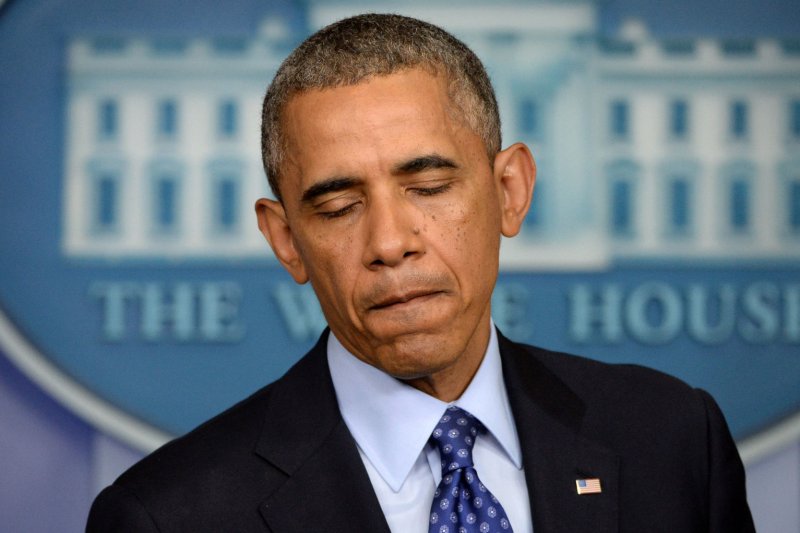WASHINGTON, June 26 (UPI) -- The Supreme Court struck a blow to the White House's ability to make political appointment when Congress is in recess, declaring President Obama's recess appointments to the National Labor Relations Review Board unconstitutional.
In a unanimous ruling handed down Thursday, the court said presidents had wide discretion to make appointments when Congress is in recess, but not when it is in a pro forma session.
Presidents have regularly used recess appointments to fill vacancies that would otherwise require confirmation hearings, but Republicans had been using the pro forma sessions -- meaning the Senate would briefly be called to order and then adjourned every few days -- to prevent Obama from doing so. Obama then took the extraordinary step of making appointments despite Congress being in pro forma session, arguing that it didn't count as being in session.
The Supreme Court disagreed:
"For purposes of the Recess Appointments Clause, the Senate is in session when it says that it is, provided that, under its own rules, it retains the capacity to transact Senate business," wrote Justice Steven Breyer in his opinion. "This standard is consistent with the Constitution's broad delegation of authority to the Senate to determine how and when to conduct its business, as recognized by this Court's precedents."
Republicans celebrated the decision, claiming vindication in the ongoing struggle between branches of government over the scope of the president's powers.
"[The decision] represents a clear rebuke to the President's brazen power grab -- a power grab I was proud to lead the effort against," said Minority Leader Mitch McConnell. "Today's decision was clear, and it was a unanimous rebuke of the President."
"Like my Republican colleagues and I have said all along, President Obama's so-called 'recess' appointments to the NLRB in 2012 were a wholly unprecedented act of lawlessness," he continued. "The President defied the Senate's determination that it was meeting regularly, and the Supreme Court unanimously agreed with us.
House Speaker John Boehner hinted that the decision would play a part in his upcoming lawsuit against Obama, charging the president with stepping outside the bounds of his constitutional authority.
"By invalidating these appointments, the Supreme Court has reaffirmed that the president cannot ignore the Constitution, and selectively interpret our rules and practices for his political purposes," Boehner said. "This decision also offers encouragement to Americans who have watched with concern as the president has declined to faithfully execute our laws."
White House Press Secretary Josh Earnest said the administration was "of course deeply disappointed" in the ruling, but was "pleased" that the decision otherwise left the president's recess appointment authority intact.
The impact of the court's decision was somewhat less since the Senate last year changed its rules to require a simple majority to end debate for judicial and cabinet appointments, rather than the usual 60 votes needed for cloture.
"More than anything, today's Supreme Court ruling underscores the importance of the rules reform Senate Democrats enacted last November," said Majority Leader Harry Reid, D-Nev. "Without that reform and with today's ruling, a small but vocal minority would have more power than ever to block qualified nominees from getting a simple up-or-down vote on the floor."
The ruling, however, would allow a Republican majority to block appointments by remaining in a pro forma session, making the outcome of November's midterms that much more critical for Obama's final two years in office.
NATIONAL LABOR RELATIONS BOARD v. NOEL CANNING















